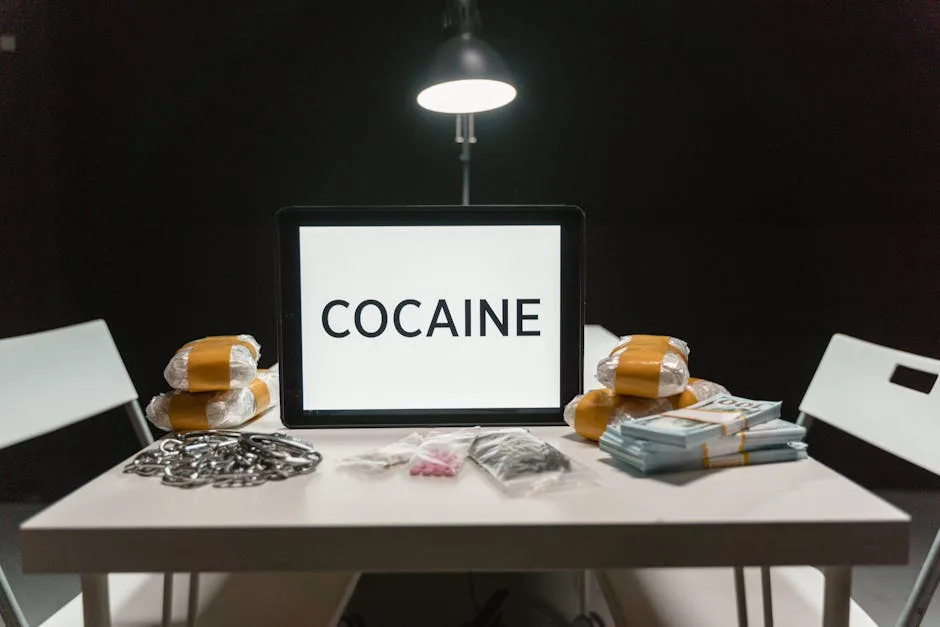
A narcotics prosecutor in Hannover, Germany, is facing trial for allegedly leaking sensitive law enforcement information to an international cocaine-trafficking organization. The case, which began on April 23, 2025, involves accusations that the prosecutor accepted bribes in exchange for tipping off the gang about a major drug raid, enabling them to evade capture.
Case Overview and Charges
The defendant, identified as Yashar G., a 39-year-old specialized narcotics prosecutor, is charged with 14 counts of severe bribery and violations of official secrecy. Prosecutors allege that between 2020 and 2021, he accepted €65,000 in bribes through a middleman—a 41-year-old boxing trainer—to provide confidential details about ongoing investigations. One of the most serious allegations involves the leak of information related to a 2021 raid that led to Europe’s largest cocaine seizure, totaling 16 tons with an estimated street value of €448 million. The gang reportedly used the leaked intelligence to avoid detection.
The trial is being held under heightened security measures, including phone bans and strict entry searches, reflecting concerns about potential retaliation or interference. The defense has denied all charges, with the defendant expected to testify in May 2025. A verdict is anticipated by September 12, 2025, after 21 scheduled hearing days. If convicted, Yashar G. could face a prison sentence ranging from three months to five years.
Investigation Timeline and Systemic Concerns
The case has drawn attention to potential systemic failures in Germany’s judicial oversight. Initial investigations into Yashar G. began in June 2022 but were dropped in October 2023 due to “insufficient evidence.” However, the case was reopened in June 2024 after leaked chat logs implicated him. Critics argue that authorities ignored an anonymous tip in 2020 warning of a possible leak within the prosecutor’s office.
This incident is not isolated. Recent years have seen multiple cases of law enforcement corruption in Germany, including two Frankfurt airport police officers aiding cocaine smugglers in 2024 and a Baden-Württemberg officer colluding with the ’Ndrangheta mafia in April 2025. These cases highlight growing concerns about institutional vulnerabilities being exploited by organized crime networks.
Broader Implications for Law Enforcement and Drug Trafficking
The case coincides with warnings from Germany’s Federal Criminal Police Office (BKA) about increasing cocaine flows into the country as North American markets become saturated. Academic experts, such as Zora Hauser from Cambridge University, note that European criminal organizations are increasingly targeting weaknesses in law enforcement and judicial systems to facilitate their operations.
Media reports, including a December 2024 SPIEGEL investigation, reveal that Yashar G. continued working despite mounting evidence against him, earning the nickname “Cop” among colleagues. The case has sparked debates about accountability and the need for stronger internal oversight mechanisms within Germany’s legal and law enforcement institutions.
Conclusion
The trial of Yashar G. underscores the challenges faced by law enforcement in combating both corruption and organized crime. As drug trafficking networks grow more sophisticated, the integrity of judicial and investigative bodies becomes increasingly critical. The outcome of this case may influence future policies aimed at preventing similar breaches of trust within Germany’s legal system.
References
- “Trial delays, gang links,” NDR, 2025.
- “Procedural details, defense statements,” HAZ, 2025.
- “Systemic corruption risks,” NZZ, 2025.
- “Co-defendant’s role, drug trade context,” Stern, 2025.
- “Investigative failures,” ZDF, 2025.
- “Institutional negligence,” SPIEGEL, Dec. 2024.






